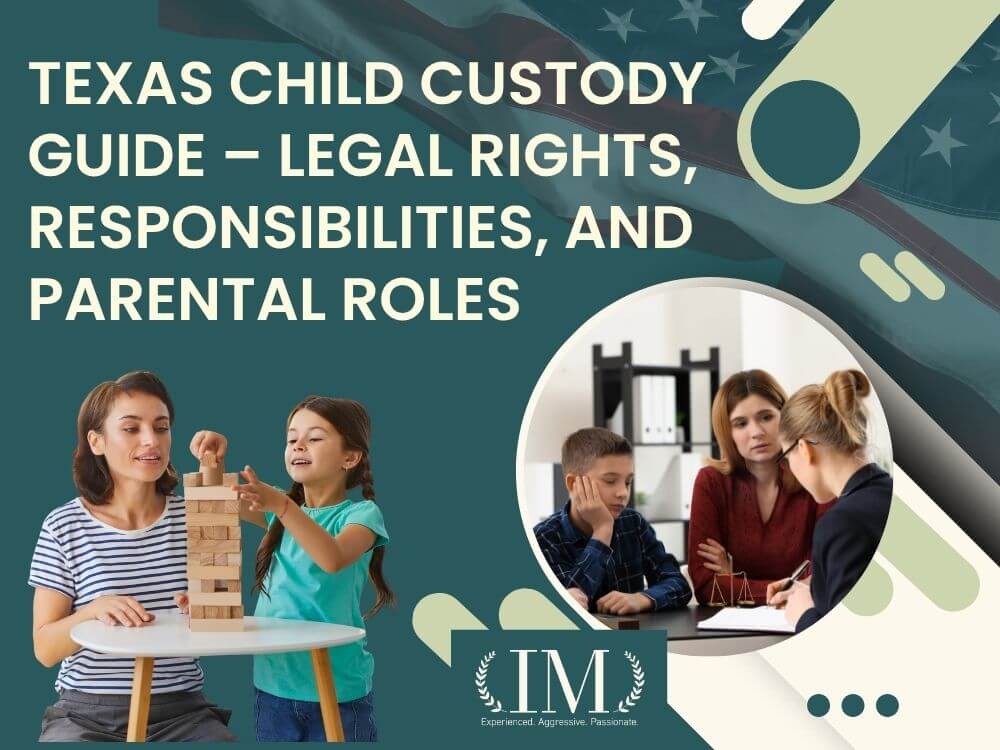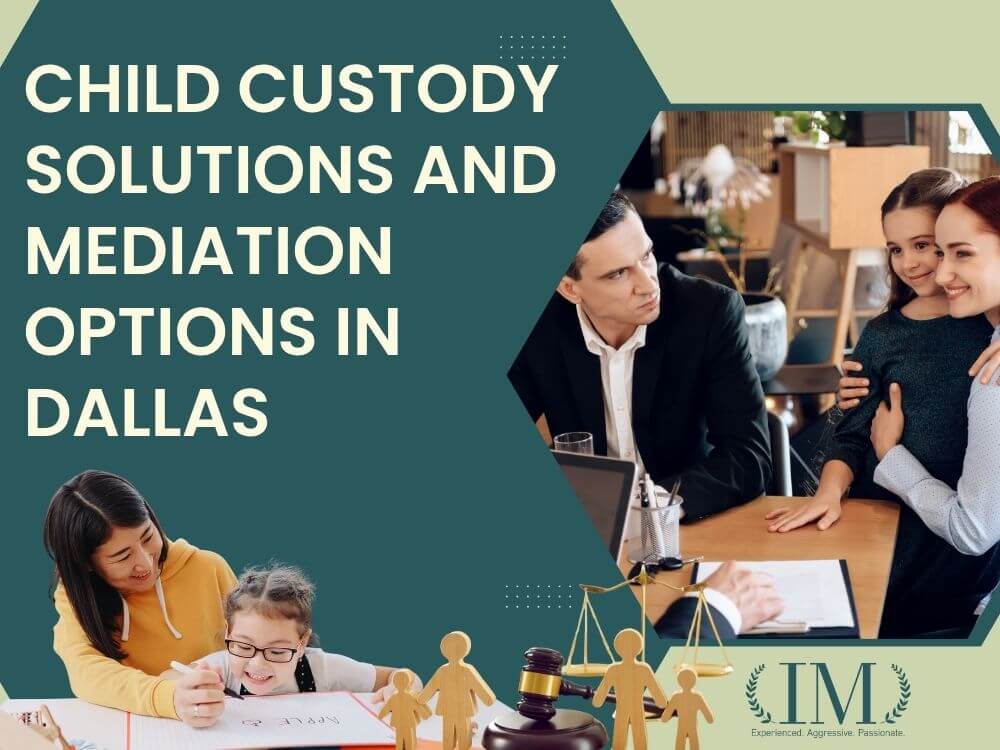Child Custody Lawyer

In child custody and visitation issues, the “best interests of the child” is the legal standard. If you sense the welfare of your child is being jeopardized or you cannot come to an agreement in a child custody matter, we are here to help.
When you call our Dallas office at 214-631-0055, we’ll meet with you to guide you through the process and help you develop an approach plan to agreement. Whether you are seeking primary custody, shared parenting time, or modifications to an existing order, a skilled child custody lawyer can help you pursue the best outcome for your family.
Table of Contents
Strong Advocacy for Parents Who Care
Whether you’re seeking fair visitation or full custody, we help create a legally sound, child-focused agreement you can stand behind.
Understanding Child Custody in Texas
In Texas, child custody is called “conservatorship.” It simply means the legal rights and duties each parent has for their child’s care and upbringing. Custody generally covers two main parts:
- Legal custody (decision-making authority) – Determines who has the right to make important decisions about the child’s education, healthcare, and upbringing.
- Physical custody (residential arrangements) – Determines where the child primarily resides.
Our goal is to help parents establish custody plans that support the child’s stability, safety, and development while protecting parental rights.

Factors Courts Consider in Child Custody Cases
When determining custody, Texas courts evaluate multiple factors to ensure the arrangement reflects the best interests of the child. Some of the key factors include:
- The child’s emotional and physical needs.
- The ability of each parent to provide a stable, nurturing environment.
- The current and future relationship between each parent and the child.
- The child’s age and preferences (when appropriate).
- Any history of family violence, abuse, or neglect.
- Each parent’s willingness to cooperate and encourage the child’s relationship with the other parent.
A child custody lawyer can help you present a strong case that highlights your commitment to your child’s welfare and stability.
Types of Custody Arrangements in Texas
Texas law recognizes several types of custody (conservatorship) arrangements, depending on the family’s circumstances:
Joint Managing Conservatorship
Both parents share decision-making responsibilities. This is the most common arrangement unless the court finds it is not in the child’s best interest.
Sole Managing Conservatorship
One parent has the exclusive right to make major decisions for the child.
Possessory Conservatorship
The non-custodial parent maintains visitation rights and specific periods of possession.
Our child custody lawyerteam will help you understand which arrangement best fits your situation and how to advocate for a plan that protects your relationship with your child.
Get Trusted Legal Guidance
Options for Resolving Child Custody Cases in Dallas
Not all child custody cases need to be settled in court. Many families in Dallas find resolution through alternative methods that save time and reduce conflict.
Mediation
A neutral mediator helps parents discuss and agree on a parenting plan that supports their child’s best interests. Mediation is often faster, less stressful, and more affordable than a court trial.

Collaborative Law
Both parents, with their own child custody lawyer, agree to resolve disputes privately instead of going to court. This cooperative process focuses on creating balanced, lasting solutions.
Negotiated Agreements
Parents can reach a custody agreement through negotiation, with attorneys assisting to finalize terms. Once approved by the court, it becomes legally enforceable.
Court Litigation
If serious concerns like abuse, neglect, or relocation arise, court intervention may be necessary. In these cases, our firm will stand by your side and advocate for your child’s best interests.
Preparing for Custody and Visitation Proceedings
Child custody and visitation cases can be emotionally charged and legally challenging. Attorney Irene Mugambi, principal family law attorney, provides comprehensive representation to help you stay informed and confident throughout the process. She will:
- Explain your rights and obligations under Texas custody laws.
- Help you organize documentation and evidence.
- Prepare you for mediation or court hearings.
Advocate for an arrangement that prioritizes your child’s well-being and stability.
Enforcing Custody and Visitation Orders
When one parent fails to comply with a court-ordered custody or visitation agreement, enforcement action may be necessary. Our child custody lawyer can assist you in:
- Filing an enforcement motion with the court.
- Collecting evidence of violations.
- Requesting remedies such as makeup visitation or sanctions.
Children benefit most when both parents respect the court’s orders, and we work to ensure those orders are honored.
Your Visitation Rights
Typically, the non-custodial parent is granted visitation rights unless the court feels that such visits would be detrimental to your child.
As a custodial or non-custodial parent, your child visitation agreements are critical and should be enforced. If you feel that the visitation agreement is not fair and equitable, we will help you protect your rights and create the best visitation agreement for your child.
Speak With a Compassionate Child Custody Lawyer in Dallas
Don’t allow your custody and visitation proceedings to go unprepared. Our child custody lawyer, Irene Mugambi, will interpret the laws, help you prepare and put you in the driver’s seat. Call 214-631-0055 or complete our contact form to schedule a consultation. We proudly serve Dallas and north Texas communities. Se habla español.
